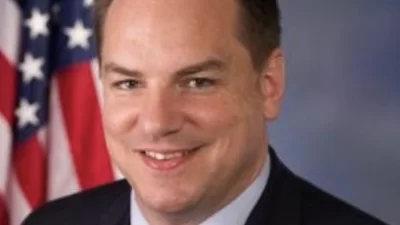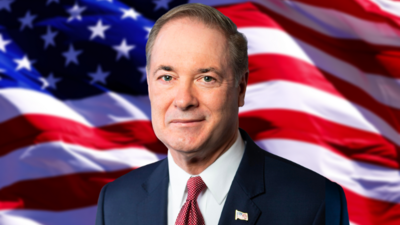I call to order our hearing on the reauthorization of the President’s Emergency Plan for AIDS Relief, or PEPFAR. I thank our witnesses and colleagues on the committee for joining us in this busy time. There are many issues before us that have wide-ranging effects on vast numbers of people. But few are as consequential as our response to the global HIV/AIDS epidemic where entire societies are at risk. Sometimes history is changed by great leaders, by wars, or by scientific breakthroughs. And sometimes history is transformed by something as tiny as a virus. We have seen the devastating effects of HIV/AIDS on our own shores with our own citizens. The fight against HIV/AIDS here at home continues as we are reminded that our responsibilities here at home are far from over. But we also know that in recent years the HIV virus has affected the lives of millions of people across the globe. It has destroyed families - even whole villages - and threatens the well-being of entire nations. At times, this disease has brought out the worst in mankind. Children orphaned by AIDS have been deprived of their rights. Women and girls have been shamefully exploited. And millions of people living with HIV/AIDS have faced stigma, fear, and discrimination. But we’ve also seen the best in mankind. Nation after nation has pledged to help. Scientists have devoted their lives to finding better ways to prevent and treat AIDS. Doctors, nurses, and other health professionals have worked tirelessly in cities and towns and villages across the world to give hope and help to persons living with AIDS. But the true heroes of this global challenge are those who struggle with the epidemic every day. The parents who fight to provide a better life for their children. The grandparents who take on the unexpected responsibility of caring for children whose parents have been lost. The millions of people who face their extraordinary challenges with quiet dignity and unshakeable determination. We are here to help these heroes win their battle for a better, healthier life for themselves and for their children. We must set ourselves the goal that within our lifetimes, we will be able to say, “No child was left an orphan by AIDS today. No life was cut short by this dread disease." Our nation has stepped forward and applied our resources and expertise not only to combat HIV in our country, but for people around the world. I commend President Bush for launching the PEPFAR global AIDS initiative to help meet this challenge, and for joining Democrats and Republicans in calling for its renewal. PEPFAR and our contributions to the Global Fund have made a real difference in the lives of millions of people. PEPFAR currently supports treatment with lifesaving anti-retroviral drugs for nearly one and a half million people. The program has supported services to prevent mother-to-child transmission of HIV for over 10 million pregnancies. And it has provided help for 2.7 million orphans and vulnerable children. We must build on these successes, and examine where the program needs improvement. With our colleagues on the Foreign Relations Committee, we have a special responsibility in this task, since so many of the key elements of PEPFAR are within our scope. We are honored that Dr. Julie Gerberding, the leader of the CDC, is here with us today to provide her insight and recommendations. We are also honored to be joined by the US Global AIDS Coordinator, Dr. Mark Dybul. We are joined too by an extraordinary panel of witnesses who bring important perspectives to inform our discussions. Our work in evaluating this program has been assisted by the thoughtful analysis of expert bodies, such as the Institute of Medicine, that have examined the PEPFAR program and made recommendations for improvement. One major conclusion from all these reviews is that the rigid funding allocations included in the original legislation hamper the flexibility that is essential in a program that spans the globe. We must also examine how generic medicines become eligible for funding under PEPFAR. At the time of the original legislation, Senator McCain and I offered an amendment to require PEPFAR to adopt the same standards that other major donors use. Our amendment was rejected, but the PEPFAR program has since acted to improve the use of generic drugs, and our committee must determine whether this process is working effectively to bring safe and low cost medicines to the people who need them. Finally, the challenge in renewing PEPFAR is to make the transition from a shortterm emergency response to a long-term sustainable initiative. This means many things, including investing in effective prevention efforts and finding ways to assist other nations in strengthening their health systems. The President has called for $30 billion for PEPFAR in the years to come, but many experts believe that this is insufficient to meet the need. Nations around the world are calling on us to act - and act quickly -- to renew the promise of PEPFAR. We are answering that call. Our hearing is part of an extensive process of consultation that our committee has undertaken to prepare for the reauthorization. Our colleagues on the Foreign Relations committee have been just as diligent. It is our intention to take action on this important responsibility as soon as possible in the new year. Reauthorization will be a bipartisan and inclusive process. Senator Enzi has a strong commitment to renewing and improving PEPFAR, and the same commitment is shared by members of the committee on both sides of the aisle. We also look forward to working with Senator Biden, Senator Lugar, and all our colleagues on the Foreign Relations committee. Most of all, we look forward to learning from the real experts -- those who work every day to improve the lives of persons with HIV/AIDS. To facilitate our discussion, we are convening in a roundtable format. After Senator Enzi makes his comments, we will hear the testimony of our two Administration witnesses, Dr. Julie Gerberding and Dr. Mark Dybul. We will then have a period of questions for these witnesses. On conclusion of that question period, I would like to invite our extraordinary panel of outside witnesses to join our roundtable, and make brief comments to introduce themselves to the committee. I hope that our Administration witnesses will not stand on ceremony, but will join us for this discussion, which would be more informative with their comments. I will close with my thanks to all our witnesses -- many of whom have changed plans or traveled great distances to be with us today. Their commitment is the most eloquent testimony to the importance of the task before us. Thank you all for joining us today, and I look forward to your recommendations. I now turn to Senator Enzi for his comments.

KENNEDY ON PRESIDENTS’S EMERGENCY PLAN FOR AIDS RELIEF United States Senate Health, Education, Labor and Pensions Committee Hearing
ORGANIZATIONS IN THIS STORY
ORGANIZATIONS IN THIS STORY








